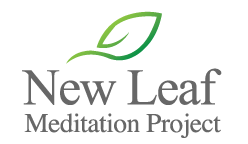Applying Mindfulness to Cope with Addiction
by Kevin O'Brien
Addiction is a nearly universal problem. Everyone has habits they would like to change. Some are relatively inconsequential things, such as checking a smartphone a little too often, not being present with your loved ones, or eating unhealthy foods occasionally. Other habits such as alcoholism, smoking, drug, gambling and sexual addictions can drastically affect the lives of the individual, their family and society in negative ways.
Whatever the habit, they all derive from the natural reward mechanism for seeking pleasure and avoiding pain. Sometimes habits can be triggered by the pleasure associated with the act itself, such as a euphoric high of a substance or the taste of a food. Other times they are triggered to avoid the pain of an uncomfortable feeling, such as taking a substance to stop physical or emotional pain, drinking to relax after a hard day at work, or having a smoke to calm nerves. These habits are all responses that have been learned and unconsciously reinforced over many years, making them very difficult to stop even when a person has a strong desire to do so.
Mindfulness meditation can be a very effective tool in changing undesirable habits in the following ways:
It teaches us to pay attention to the here and now. Meditation at its core is a practice that helps build concentration and focus on what is happening within and around us. We learn to notice our bodily sensations and thoughts that may have previously gone unnoticed, allowing us to catch stray thoughts and feelings that may not be helpful in reaching our goals. We may catch a tempting thought or sensation before it gains a head of steam and becomes a full-fledged craving.
Mindfulness meditation helps us notice the space between the sensations (emotions, feelings, bodily sensations, thoughts), the urge to act on those sensations, the decision to act, and the actions themselves -- our behavior. These steps may appear to be seamless, but they are not. The focus and attention of a consistent meditation practice shows us that each of these points provides us with an opportunity to choose and not automatically do the behavior without considering the consequences or alternatives.
Meditation changes our relationship to cravings. One of the greatest insights that becomes obvious during a consistent meditation practice is the truth of impermanence, that everything has a beginning, a middle and an end. We tend to give into cravings by believing that unless we do something to alleviate the discomfort the feeling is going to last forever. If a craving arrives, we can learn to simply observe it. Notice where it lies in our bodies, it may be a tightness in the belly or a tightness in the neck or back. Notice the thoughts that arise. Then notice the craving change. It will start small, rise up like an ocean wave and then subside and disappear. Perhaps the craving will come back but the cycle is always the same. We are not stuck with a craving forever; it will go away of its own accord if allowed to and not given into no matter what our mind tells us. When we are able to feel the urges and not react to them by giving in to the craving, the reinforcement pattern gets weaker and in time the cravings become lessened or subside all together.
Mindfulness also allows us to learn from our slips. Training the mind in meditation practice allows us to notice what were the triggers that brought on the cravings and what was going on in our bodies and minds before, during, and after we indulged. This awareness helps us to be more vigilant to the factors that were present within and around us before and during our slip. We may notice feelings of shame and inadequacy after a slip. Feelings that, if not acknowledged and dealt with, may bring on the “what the heck” effect, repeating the behavior again to self soothe because you feel bad about screwing up.
Here is a simple meditation practice to help cope with cravings:
1. Practice breath awareness for a few minutes to gain focus and to bring yourself in the present.
2. Introduce something into your mind that is mildly pleasurable or will relieve discomfort, something other than the substance or behavior you are trying to correct if you know you have a problem. An example of something mildly pleasurable may be a favorite food, drink or something that isn’t healthy but tastes good but is not what you are addicted to. An example of something to relieve discomfort: having to wait to use the bathroom or mild cramping in the back while sitting in meditation.
- What are the thoughts that come up about this? Where do the desires arise in the body? Just notice, don’t do anything, just observe using your breathing to bring you back if you get too lost in the thought or too focused on the craving.
- Notice that the craving waxes and wanes. Notice there is a space between you and the craving. The craving or behavior does not define who you are. The craving begins as a small wavelet and rises to a giant wave, then subsides, begins, rises and subsides.
3. Return to the breath practice for a few minutes.
As you get more accustomed to this in your sitting practice and you are feeling stable, introduce thinking about whatever you are addicted to in the same way during your meditation sitting practice. This may naturally happen in your normal practice through the normal workings of the mind. Use the breath to notice the impermanent nature of these cravings. They rise and subside, rise and subside.
Then take it out to the real world when you are tempted by an addiction or addictive behavior. Using your mindfulness practice will help you notice the craving early so you don’t go on auto-pilot and do the addictive habit without awareness. Use the breath to ride the craving until it subsides. Don’t reinforce it with your thoughts. When it goes away, let it go. When it comes back, become aware of it until it goes away on its own.
I hope this technique is a helpful addition to your mechanisms for coping with undesirable habits or addictions.
Kevin O'Brien
New Leaf Meditation Instructor
New Leaf Board of Advisers

